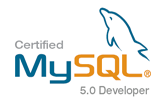I have been working hard lately on Eventum, and a bunch of new exciting features:
– Ability to allow visitors to signup for new accounts, and have these new accounts restricted to customizable set of available projects. The administrator also has the ability to specify which permission level these users should be granted
– A new ‘reporter’ permission level that allows users to all of the same privileges as a ‘viewer’ user, but with the added ability to report new issues, handle support emails and to enter their time in the time tracking module
– RSS feeds for custom filters. The user basically just needs to go to the Advanced Search screen, create a custom filter and then an RSS feed will be available. The problem is that this requires HTTP-Auth support on the RSS reader, but there are available tools out there.
– An installation tool that helps the administrator as much as possible on how to setup the application, including automatically creating the necessary MySQL tables, setting up the permissions and so on
– The handling of duplicate issues is also much better, with the ability to mark several issues as duplicates of an existing one, and from then on all changes to the ‘master’ issue will be propagated to the ‘child’ ones
– The administrator/manager of the tool can create canned email responses and use them while replying to support emails. This will help minimize common tasks a lot
– Ability to save and load draft email responses, so a reply to a support email could be created by several users collaborating together
This is getting pretty good… I’m almost in the level where I’m ready to release version 1.0.




